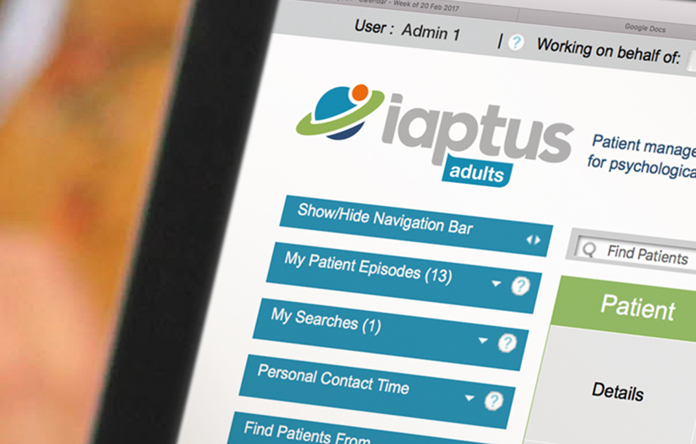
Thank you to all who joined us at the iaptus user group meeting last month. As usual, we came away with a huge amount of valuable new knowledge which we look forward to incorporating into iaptus to ensure it best supports the way you work.
To keep those of you who weren’t able to attend firmly in the loop, this week we’re publishing a series of blogs recapping presentations from the day, starting with this recap of Fiona’s talk on a new optional extra feature: Hybrid Mail.
Collaboration is one of the founding values of iaptus, which was created in collaboration with clinicians at ELFT back when the IAPT programme began. To this day we seek to gain user input in everything that we do, and through our relationships with CCGs, service leads, clinical staff and administrators, we are always working to increase understanding of the pressures that services face.
Digitisation and automation can benefit services in a multitude of ways: from cost savings, to repurposing precious time and resources. In one of the first presentations of the day, Fi introduced Hybrid Mail, a new communications option that does just that… and crucially, which signifies the end of manual envelope stuffing. It is also a significant step that services can take toward going paperless.
Hybrid Mail allows letters to be sent from iaptus via a secure and accredited mail-house. In short, a letter can be created in iaptus as normal, which is then transmitted digitally to a mail-house location via N3/HSCN. The mail-house then prints the letters, puts them into envelopes, sorts and sends them via Royal Mail. The mail-house also tracks the letters, and confirms delivery.
This approach is commonly used across the NHS and is proven to significantly improve efficiency, particularly with regards to staff time and postage costs.
It is safe, secure, and easily integrated into your current workflows. In most cases, you can even continue using the same letter templates.
After assessing potential partners for this project, we have elected to work with Docmail, a company that already holds contracts with a large number of NHS Trusts across England as well as with other clinical systems.
The cost of the service is pay as you go per letter, and is determined by factors such as whether you wish to send via first or second class, with single or double sided printing, and in black and white or colour. The cost of sending a typical appointment letter is priced at roughly 51 pence, leading to significant savings each year.
Docmail is kindly offering a £10 trial to each iaptus service. If you would like to find out more about Hybrid Mail and to take up the free trial please contact your account manager.
